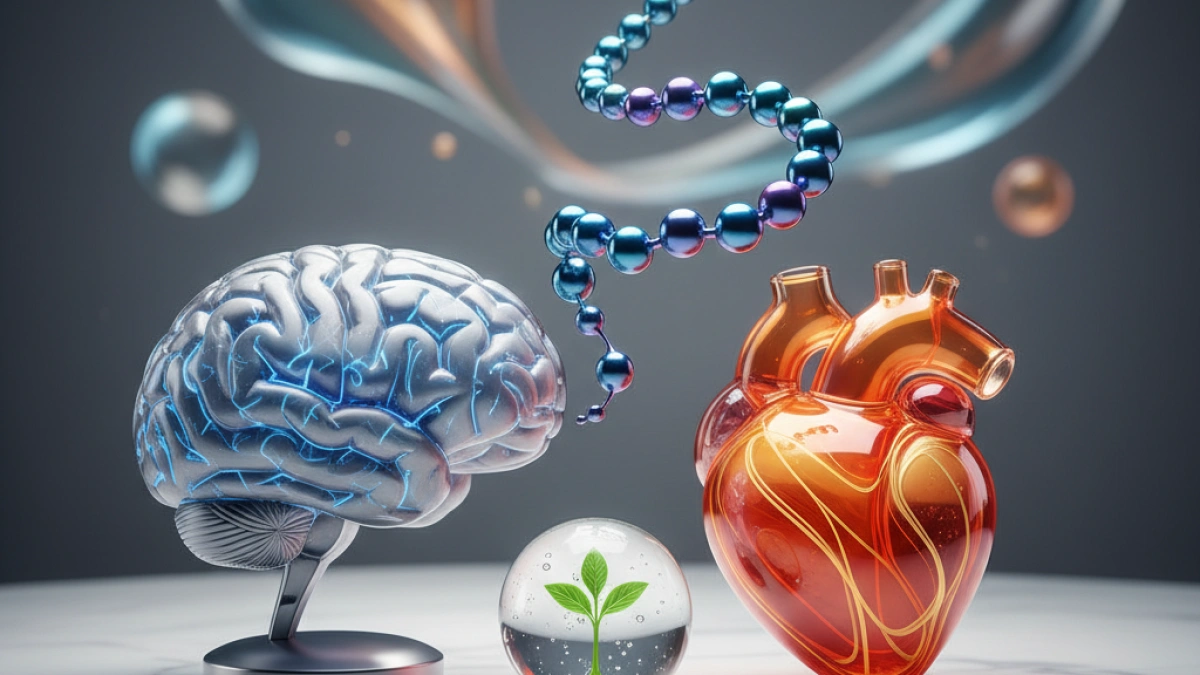Benefits of DHA for health and well-being

DHA (docosahexaenoic acid) is an omega-3 fatty acid that has gained popularity in recent years due to its multiple health benefits. This key component of cell membranes plays a crucial role in the optimal functioning of the human body. In this article, we will explore in depth the benefits of DHA and how it can enhance your overall well-being.
What is DHA?
DHA is a polyunsaturated fatty acid that is primarily found in marine sources, such as fatty fish (salmon, sardines, tuna) and algae. Unlike other fatty acids, DHA is essential for the human body and must be obtained through diet, as the body cannot produce it efficiently.
Sources of DHA
- Fatty fish: Salmon, trout, sardines, and mackerel are rich in DHA.
- Fish oil supplements: These are a popular option for those who do not consume enough fish.
- Algae: A plant-based source of DHA, ideal for vegetarians and vegans.
- Fortified foods: Some foods, such as certain types of milk and eggs, are enriched with DHA.
Health Benefits of DHA
1. Heart health
DHA is known for its positive effects on cardiovascular health. Studies have shown that adequate DHA intake can:
Read also
- Reduce the risk of heart disease: DHA helps lower triglyceride levels and blood pressure, which can decrease the risk of heart attacks and strokes.
- Improve arterial function: It helps maintain the elasticity of arteries, promoting better blood circulation.
2. Brain health
DHA is an essential component of the brain. It has been found to support:
- Cognitive development in children: DHA is crucial during pregnancy and breastfeeding for the brain development of the fetus and baby.
- Cognitive function in the elderly: Adequate DHA intake is associated with a lower risk of cognitive decline and neurodegenerative diseases such as Alzheimer's.
3. Eye health
DHA is an important component of the retina. Its intake can:
- Improve ocular health: It helps prevent conditions like age-related macular degeneration (AMD), one of the leading causes of vision loss in older adults.
- Optimize visual function: It contributes to visual acuity and overall eye health.
4. Mental health
Research suggests that DHA may have a positive impact on mental health by:
- Reducing symptoms of depression and anxiety: Several studies have found that omega-3 can be as effective as some antidepressants in treating depression.
- Improving mood: DHA supplements may help stabilize mood and reduce irritability.
5. Health during pregnancy
During pregnancy, DHA is vital for:
- Fetal development: It contributes to the brain and eye development of the fetus.
- Reducing the risk of complications: Some studies suggest that adequate DHA intake may be associated with fewer preterm births and a lower risk of postpartum depression.
How much DHA do you need?
DHA intake recommendations vary by age and health status. However, many health organizations suggest a combined daily intake of approximately 500-1000 mg of EPA and DHA for healthy adults.
Considerations to keep in mind
- Consult a healthcare professional: Before starting any DHA supplement, it is advisable to discuss it with a doctor.
- Balance your diet: Combine DHA intake with other essential nutrients for optimal health.
Conclusion
DHA is an essential nutrient that offers numerous health and wellness benefits. From cardiovascular health to brain development, including sufficient sources of DHA in your diet can significantly contribute to your quality of life. Make sure to consume fatty fish, consider supplements, and, if necessary, consult a professional to optimize your DHA intake. Maintaining a healthy and balanced lifestyle is crucial to enjoy all the benefits this incredible fatty acid has to offer.











































